PRESERVING A MILITARY LEGACY FOR FUTURE GENERATIONS
The following Reflections represents ET2 Alan Spielman’s legacy of his military service from 1979 to 1988. If you are a Veteran, consider preserving a record of your own military service, including your memories and photographs, on Togetherweserved.com (TWS), the leading archive of living military history. The following Service Reflections is an easy-to-complete self-interview, located on your TWS Military Service Page, which enables you to remember key people and events from your military service and the impact they made on your life. Start recording your own Military Memories HERE.
Please describe who or what influenced your decision to join the Coast Guard.

I was interested in electronics but found it difficult to work 8 hours, go to school 8 hours, and study at least 4 hours a day, and I burnt out. I researched all the services and found the Coast Guard electronic technicians trained on everything, and they only specialized between aircraft and all others.
So I joined to get electronics school where I could work on everything from small boats to large cutters, buoy tenders, ice breakers, Loran (long-range aids to navigation), lighthouses, shore stations, communication stations, and remote aids/high sites.
They paid me to go to school.
Whether you were in the service for several years or as a career, please describe the direction or path you took. What was your reason for leaving?
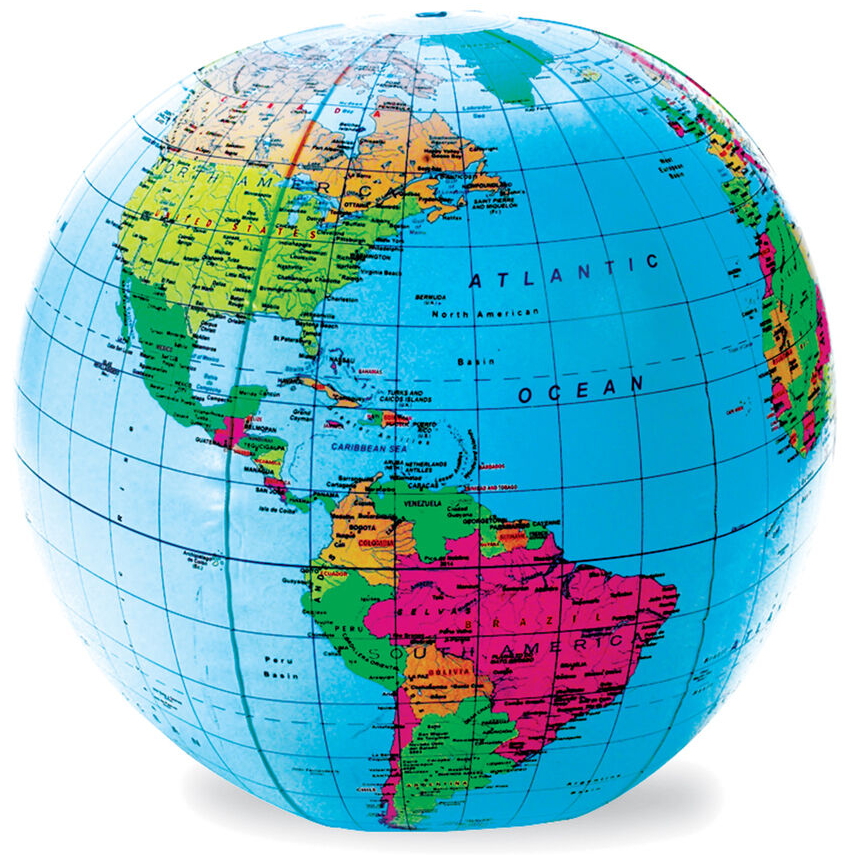
I enjoyed the Coastguard but saw that I received less and less hands-on as I gained rank. I was offered a job by a company out of the bay area in California as a commissioning engineer for high-power communications. I took the job and worked all over the world.
If you participated in any military operations, including combat, humanitarian and peacekeeping operations, please describe those which made a lasting impact on you and, if life-changing, in what way?
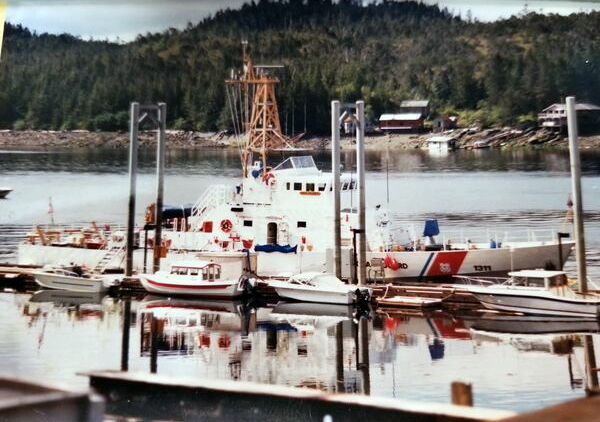
I got to go out on a lot of cutters that didn’t have an ET onboard and go through their equipment to get them ready for refresher training. All the ships in Alaska would do their training in Hawaiian waters, and I would go out for a few days and become part of the crew and train with them before they left.
I also participated in military training exercises held in Alaska with Army, Navy, Air Force, and Marines.
I was helping to clean up in Okinawa after a super typhoon was very rewarding.
Did you encounter any situation during your military service when you believed there was a possibility you might not survive? If so, please describe what happened and what was the outcome.
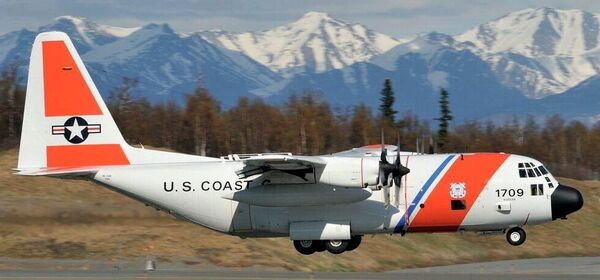
One time while on a C130 flying into Kodiak, Alaska, I don’t remember what we were coming back from; we encountered heavy fog. We circled and looked for an opening, and the ground told us we had enough clearance at ground level to land. We started down, using the airport radio beacon to try to line up on the runway. The pilot put me in the port (left) search blister and gave me a headset so that I could call out if I saw an opening or the ground. The fog was extremely thick, and I could just barely see the inboard propeller on my side. We kept getting lower and lower. Then suddenly, we burst out of the fog, and all I saw was the side of old woman mountain which is on the left side of the runway when approaching from over the water. We were heading right for it.
All I could say was up up up up up. The pilot immediately pulled up and banked right to get us away from that mountain. The G forces pushed me down into that port bluster seat, and I felt like I was just outside the aircraft, flying into the mountain. I couldn’t take my eyes off the propellers as we just skimmed the mountain. I could see the grass on the mountain being blown by the propellers. We had contrails coming off the wingtips. Just as fast as we burst out of the fog, we were back into it and blind again. The pilot gave the plane all the throttle he could, and we did a steep climb until we pulled out of the top of the thick fog like a whale bursting through the ocean’s surface and going airborne. We leveled out and circled. Nobody said a word.
Finally, the pilot reported that Anchorage was clear and we would spend the night there. We landed safely at the international airport and walked into the airport hotel. We were immediately grabbed and pulled into a celebration party for President Reagan, who was just elected and called the winner. We never mentioned our ordeal to anyone that night. We ate and drank a few rounds, then slipped out to get some sack time before flying out the following day.
Of all your duty stations or assignments, which one do you have fondest memories of and why? Which was your least favorite?
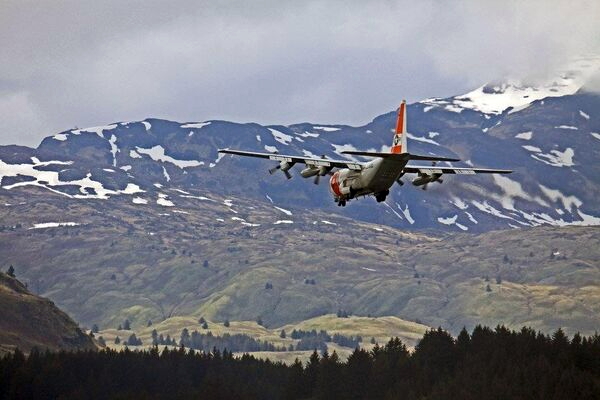
I enjoyed them all. The hardest would have been when I helped out the LORAN station on Iwo Jima as they were short-handed. There was scorching, sulphuric gas and ashes everywhere, and they were constantly fighting the corrosion.
I think I enjoyed the EST station in Ketchikan, Alaska, primarily due to traveling all over via small boats, cutters, buoy tenders, choppers, C130, and civilian aircraft of all sizes and kinds. I was working on anything and everything.
From your entire military service, describe any memories you still reflect back on to this day.
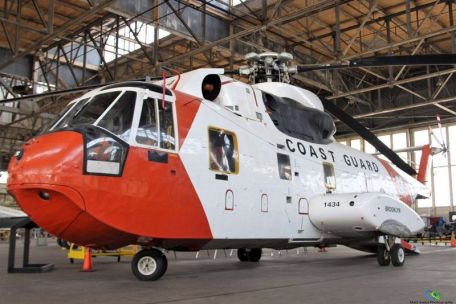
Once, I was returning from a remote lighthouse in Alaska via an HH-3. I had completed my survey early, so the pilot asked if I would like to go site seeing. It was a beautiful day. They dropped the board seat between the pilot and co-pilot, and I sat between them. We started following a river to see where it went. It was flowing between these mountains. Then it became a huge waterfall that came from way up. We started following it right up to the top, but our prop was just clipping the waterfall’s edge. I kept inching back on that board, trying to get away from it. Both of those guys had a good time making me nervous. I got to know a lot of the aircrews and the boat and cutter crews. We worked hard and enjoyed the wonders of Alaska. Fishing from an overnight Anchorage or watching the native children catch crabs while servicing remote radio equipment in a remote village.
Getting a call to catch a plane because a small boat had issues and needed to get underway on a rescue. Fixing their problems so they would be successful in their duties was very satisfying.
Getting our dress blues on when we went to funerals for our friends that didn’t make it back. Heartbreaking, but unforgettable.
What professional achievements are you most proud of from your military career?

My Meritorious unit commendations and unit commendations were all earned with hard work and determination, but with teamwork with guys and girls that I respected.
Which individual(s) from your time in the military stand out as having the most positive impact on you and why?
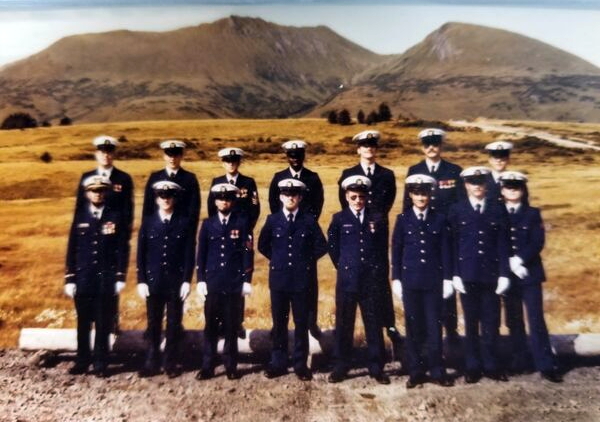
My first commanding officer at LORAN station Narrow Cape, Alaska. Gardner.
My two best friends are David (Fred) Walker and Pete Dashnaw. I still try to stay in contact with.
My roommate and friend Randy Sutton while in Ketchikan, Alaska. Scott Jacobs and his brother. Dewey Butler.
Lots of others that I have trouble remembering their names, but I will never forget their faces.
Can you recount a particular incident from your service, which may or may not have been funny at the time, but still makes you laugh?
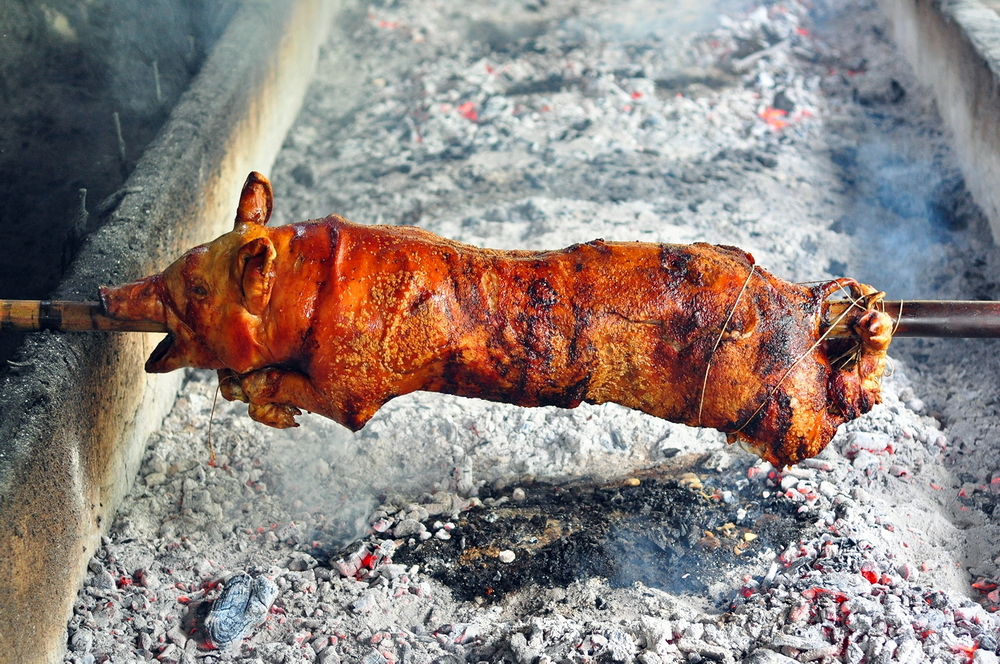
Once stationed at Gesashi LORAN station in Okinawa, one of my friends and I got the fire pit ready for the cook. We were going to BBQ a whole pig. We sat on a wall not far from the cinder block fire pit, drinking a beer and feeding the fire to get some coals going. As the fire was roaring, the cinder blocks in the pit exploded all of a sudden! The force of the explosion and debris knocked us both off the wall. We got up partially deaf with our clothes and hair smoking and covered in debris.
We could only figure out that when the pit was made, someone had put cans and bottles in the cinder block holes and sealed them in with concrete. The heat we made must have expanded the air inside, resulting in the explosion. We were concerned at first that we would not be able to cook that pig, but we all pitched in and made a support works for the pig.
What profession did you follow after your military service and what are you doing now? if you are currently serving, what is your present occupational specialty?
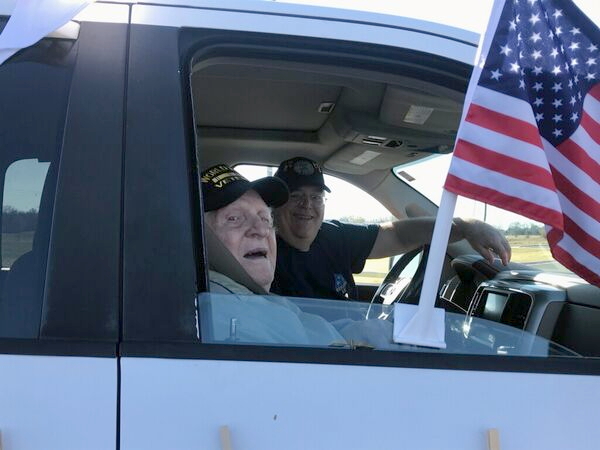
I went into high power communication and traveled the world. I enjoyed it more after getting married and having my wife travel with me.
After my mother and my wife both died within a year of each other, I went to HVAC school and worked for a commercial HVAC company in Tulsa, Oklahoma. I broke my neck in a wreck and blew out my knee. After getting fixed, I worked for a friend who taught me oil and gas production and enhanced oil recovery after getting fixed. We built several different machines. Then the oil market fell, and I ended up back in HVAC but as an inside salesman. I sit in front of a computer all day and am not really happy but closing in on retirement.
I hope to retire within the next four years. I married again to a sweet lady that is looking forward to me retiring too. I have 18 grandkids and two great-grandchildren.
In what ways has serving in the military influenced the way you have approached your life and your career? What do you miss most about your time in the service?
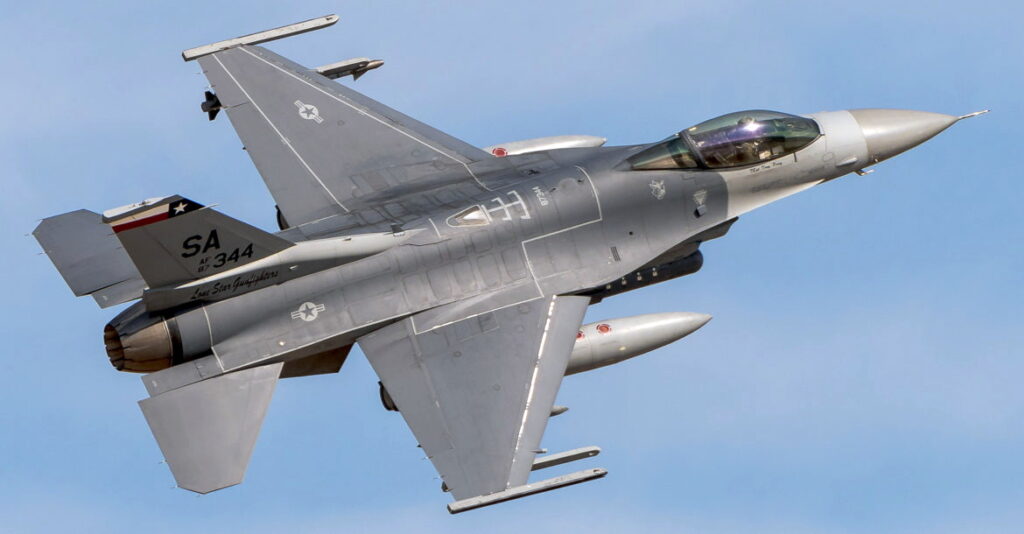
I carry that Coast Guard can-do attitude still to this day and am always ready for whatever comes my way. On 9/11, my wife and I watched the towers get hit and walked outside our apartment in northern Minnesota, where we were running a motel. Two F-16s running full afterburners flew right over us, heading Northwest towards Canada. A little later, I received a phone call asking if I would go overseas to help, and I couldn’t say no. My wife was horrified! After what we witnessed, I told her how I could ever say no.
I found myself on the first plane that was allowed to fly after they were all grounded. I was briefed on what I was doing but not where. When I landed in the U.K. I was transferred to Brise Norton and flown via British air forces to the Middle East. I landed in Oman and drove to a place not far from the straights of Hormuz.
I set up some over the horizon comms. Not long after getting the towers up and stringing up the antenna wires, we had a British Tornado fully loaded appear between the mountains where we had our towers. He was flying so low that I yelled for everyone to dive for cover. I thought for sure we were going to catch that jet in our antennas. He had to pull some G’s, but he made it over us. The very next day, an American F-16 fully loaded did the same. We managed to get word to the base, and they sent an Omanian air force plane to fly circles over us, marking our location. The next day they used the passage just to the East of us and avoided our antennas. It was brutal working out in that sand through sand storms and the heat, but we got the job done.
At one point, I had to run the job project engineer who was an old friend of mine a couple of hundred miles across the desert to the nearest hospital. He was having a heart attack. I got the medic, and I drove them both there as fast as I could. He survived to live another ten years. I miss him. I ended up having my wife join me, and we traveled all over, doing work for the state department, helping our coalition friends with whatever they needed. We were based out of Cyprus and went to Egypt, Romania, Malaysia, and several other countries.
Based on your own experiences, what advice would you give to those who have recently joined the Coast Guard?
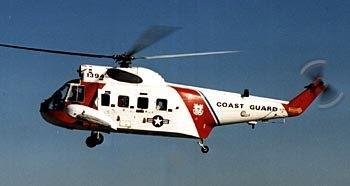
Experience all that you can and take every school and course you can get your hands on.
In what ways has togetherweserved.com helped you remember your military service and the friends you served with.
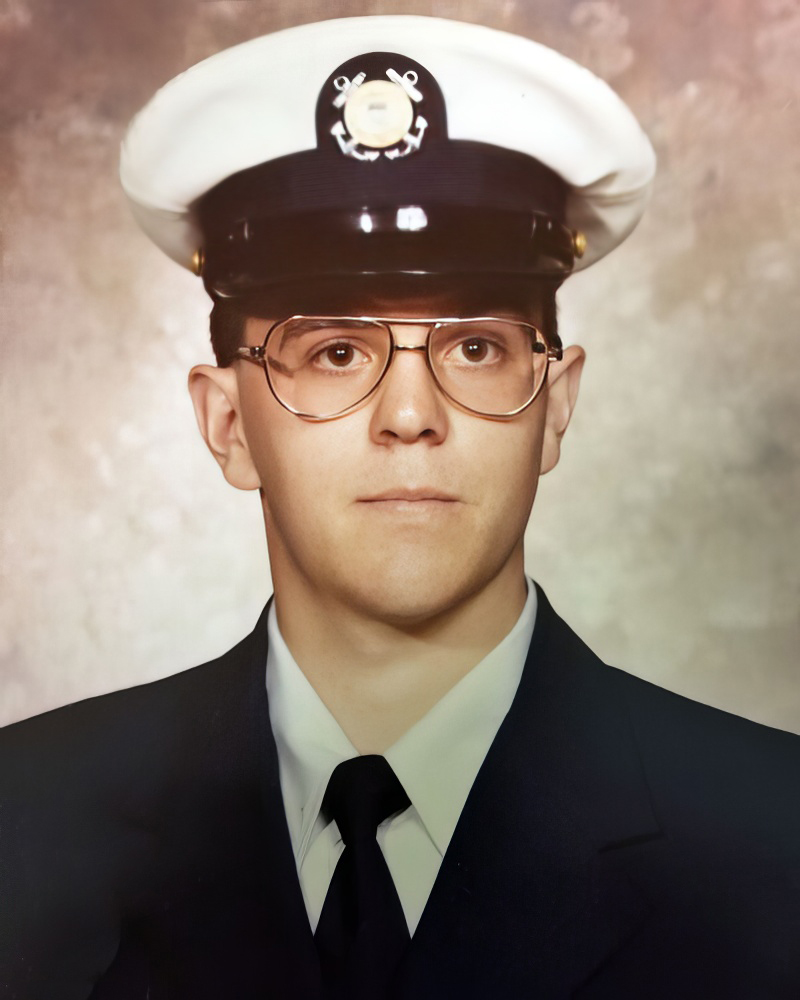
I have found that TWS has reminded me of what I enjoyed most about serving in the Coast Guard, serving my country, and helping others. I have become my company’s veteran resource representative.
I have taken old WWII and Korean vets that are normally homebound to some Tulsa Drillers baseball games. I have listened to them and built shadowboxes for them to pass down to their families. With TWS’s help, I will be making profiles for them and relaying their experiences to TWS so that they are never forgotten, along with many I have heard from Vietnam veterans, both deceased and old friends.
Thank You, TWS!
PRESERVE YOUR OWN SERVICE MEMORIES!
Boot Camp, Units, Combat Operations
Join Togetherweserved.com to Create a Legacy of Your Service
U.S. Marine Corps, U.S. Navy, U.S. Air Force, U.S. Army, U.S. Coast Guard
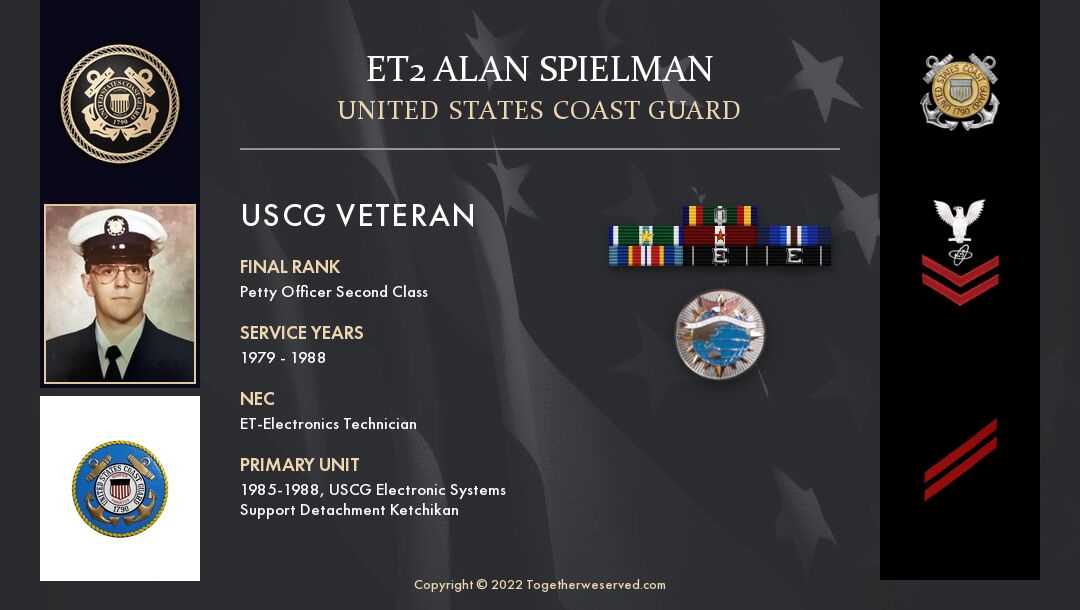
Enjoyed your blog & comments of your service & travels. I was a Navy Sea Bee 1958-1962 traveling to Hawaii, Canton, Figi Islands, New Zealand , Mcmurdo Sound, Marble Point,Byrd Station, & Drove a D8 LGP to the south Pole. Flying back to New Zealand on A C130, back to the states on a MATS C118 to San Francisco.
Thank you for your story and your service. I enjoyed reading your story.
Good luck buddy
Great story Alan!